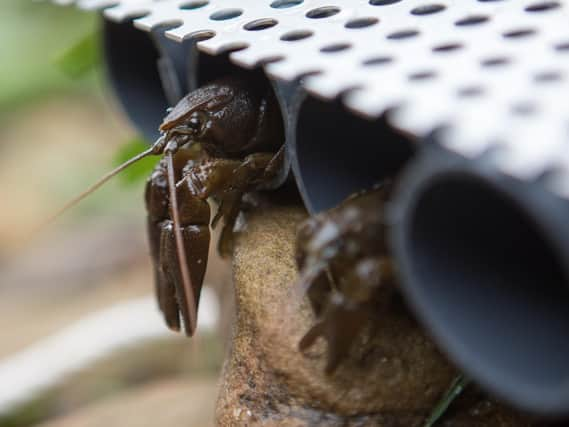River users in North Yorkshire urged to take extra care with biosecurity as suspected case of fatal Crayfish Plague is found on the River Leven


The Environment Agency is looking into the possible case on the River Leven, from its source near to Great Ayton where it joins up with the River Tees.
The disease, which cannot be transmitted to any other fish or animals, is only harmful to our rare native white-clawed crayfish. Ecology officers from the Agency have recovered 40 - all dead- along a 700 metre stretch of the River Leven at Crathorne.
Advertisement
Hide AdAdvertisement
Hide AdThe Agency is now urging all anglers and river users to be extra rigorous with their cleanliness and biosecurity measures to help protect the population which lives and breeds in North East waters.
Samples from those recovered have been sent to a specialist laboratory to confirm the initial concerns it may be Crayfish Plague.
Environment Agency, Team Leader for Biodiversity and Geomorphology, Alice Fitch, said: “With the warm weather forecast expected over the coming days, it could attract more people to explore and fish in their local rivers and ponds.
“It’s so easy to throw your used wellies and fishing equipment into the boot of the car without cleaning them. The dangers being, if you then use the same equipment in a different water course the disease can be spread. We would always urge people to check, clean and dry their footwear and equipment after spending time in and around watercourses. Anything that has contact with the water and riverbank needs to be cleaned thoroughly after use with warm water and environmentally friendly detergent. Then dried for 48 hours to make sure any nasty parasites are killed.
Advertisement
Hide AdAdvertisement
Hide Ad“We are really lucky to have white-clawed native crayfish living in the North East and increased biosecurity is the best way to help protect the population.”
To report any incidents or concerns to the Environment Agency please use the incident hotline on 0800 807060.
Comment Guidelines
National World encourages reader discussion on our stories. User feedback, insights and back-and-forth exchanges add a rich layer of context to reporting. Please review our Community Guidelines before commenting.